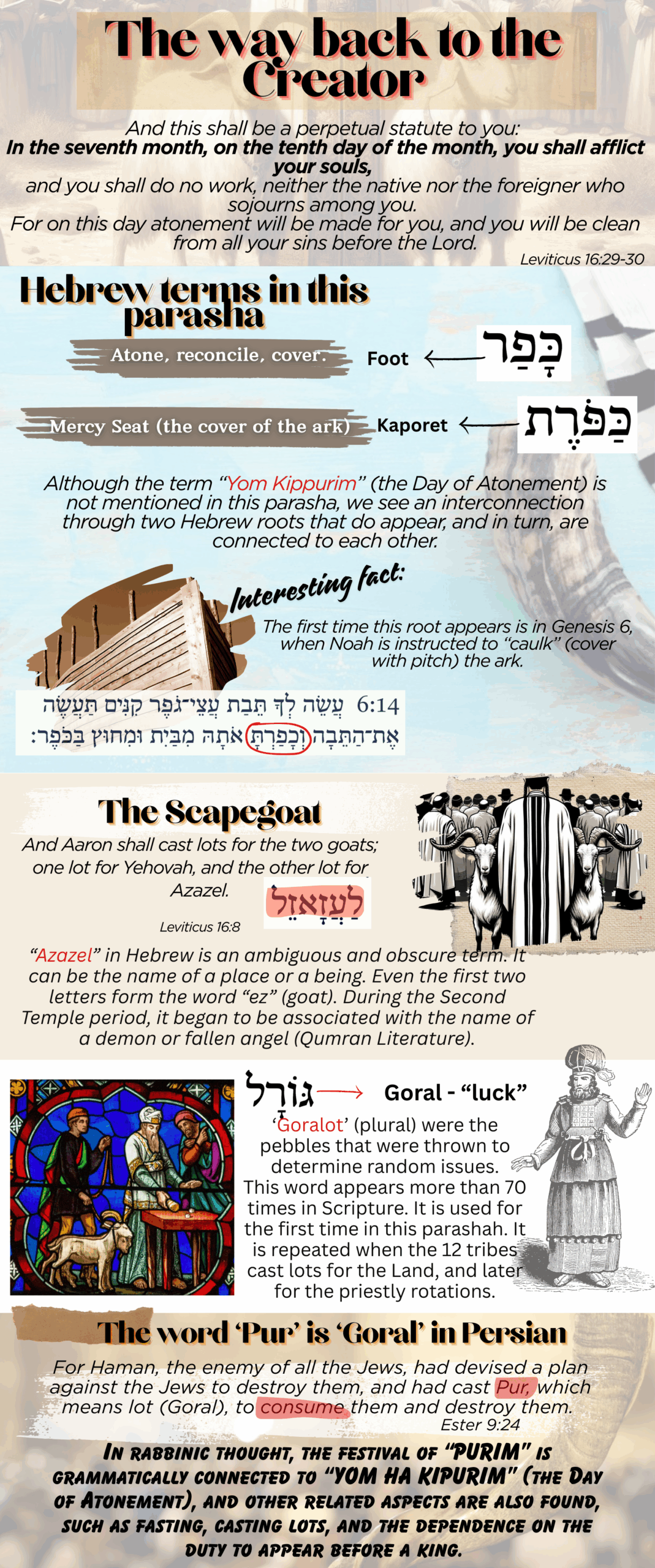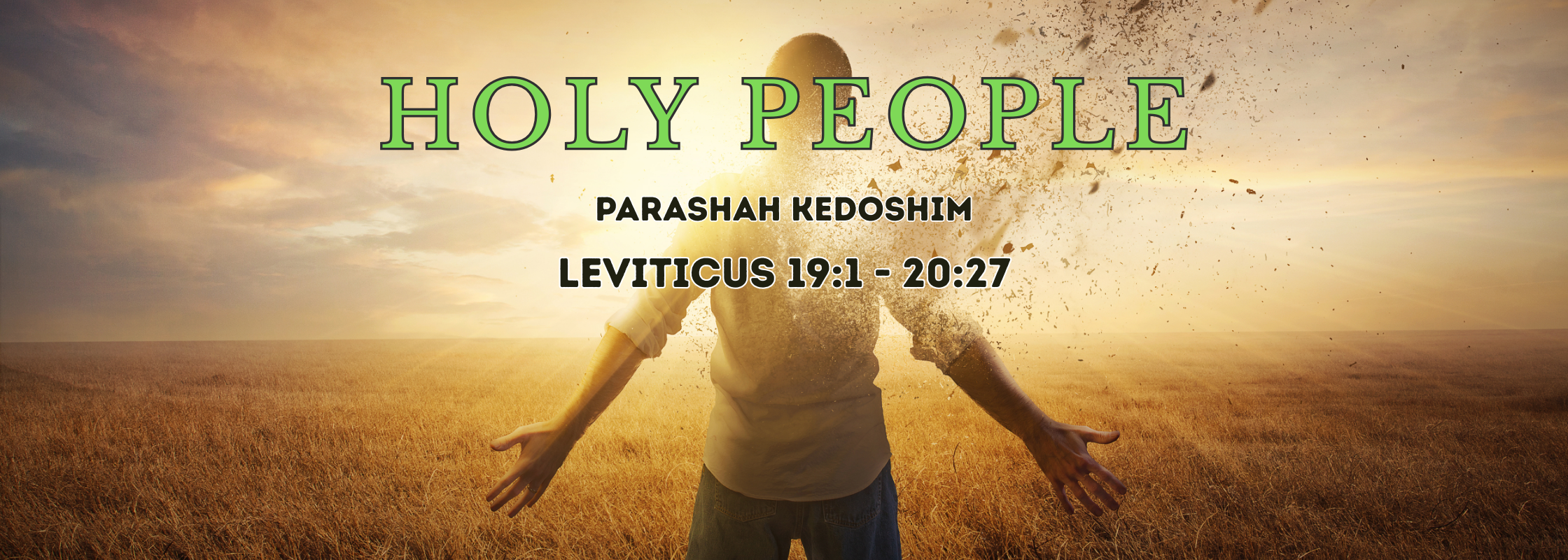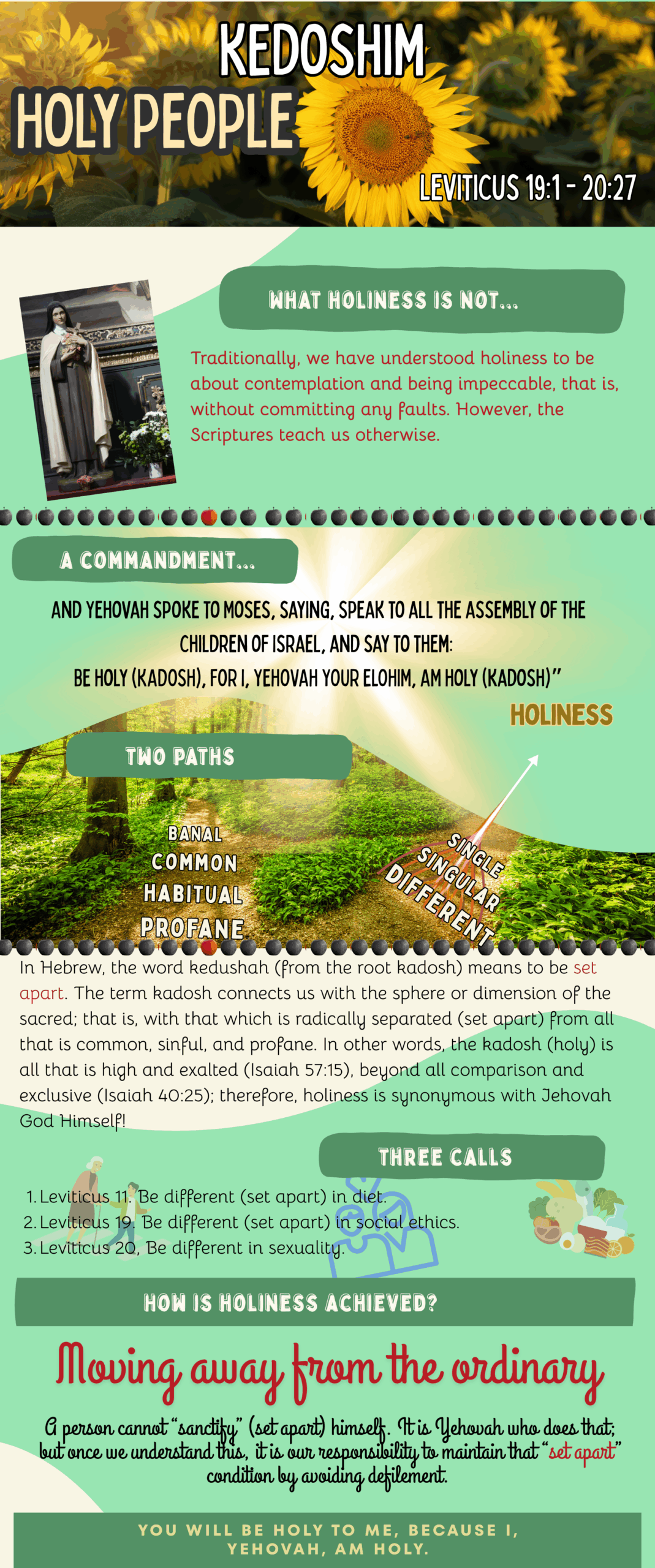Parashah Acharei Mot
Leviticus 16:1 – 18:30
In Leviticus, chapter 16, we are presented with the ritual of sacrifices that will be carried out every Yom Kippur. This day is the only day of the year when the priest entered the Holy of Holies.
In this communal ritual, Aaron would place both hands on the head of a live goat and confess all the iniquities of the children of Israel “to make atonement once a year for all the sins of Israel.”
This was an extremely solemn day, and in this parashah we have the opportunity to see how it was originally conceived in the Creator’s instructions to Israel. Let’s see what we can learn from this:

Questions for Reflection:
How can we incorporate the principle of reconciliation, so central to Yom Kippur, into our daily lives?
How do we bring about this reconciliation with the Creator year after year now that we cannot take part in that ritual?
If Yeshua paid for all our sins, does that mean we will never sin again? Is it still necessary to afflict our souls and fast on Yom Kippur?
How do Jews observe this day if they do not believe in Yeshua and cannot perform the ritual of atonement?
Parashah Kedoshim
Leviticus 14:1 15:33

The idea of holiness (separation) implies differentiation: the dimension of what is set apart is entirely separate from what is common, ordinary, profane. What is set apart is singular, unique, inspires respect (or fear) and can even be terrible or frightening, because its presence highlights imperfection. As the Set Apart One, Yehovah is distinct, sacred, separate as the only one of His kind; therefore, He is worthy of worship and adoration because He is without equal, without rival, and remains as Master, Creator, and Supreme Authority in relation to the world and its creatures.
That being the case, then, to be set apart means that we must separate ourselves from everything that is worldly, trivial, common, or evil. In other words, to be set apart means absolute goodness and moral perfection. It is impossible for Yehovah to condone sin or injustice of any kind or degree, because to do so would deny the distinction between the kadosh (holy) and the profane and thus undermine the very nature of holiness itself. The set apart—kadosh—is the opposite of the profane. It is the same as the nature of light dispelling darkness and giving no place to it. They cannot coexist in any way or in any proportion.

When Creation was complete, Yehovah set aside the seventh day, not because it had any intrinsic value that made it different from the other days of the week. No. Yehovah designated it as a day of rest and set it apart from the others. Did the Shabbath deserve this? Of course not. It was by virtue of its Creator’s decision that it acquired that characteristic.
Similarly, when we are “chosen” by Yehovah, His purpose is that we be set apart. But unlike the Shabbath, which had no will of its own to accept or reject such a choice, we do have a will, and it is our decision to start down that path or remain as we were before.